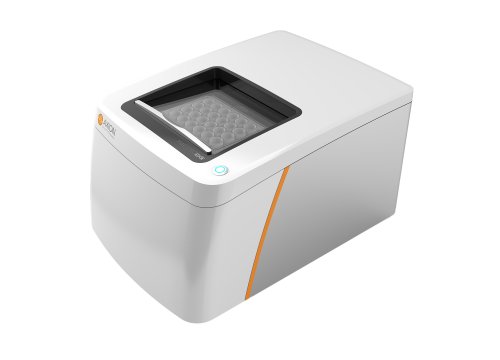Lee S-G, Kim Y-J, Son M-Y, Oh M-S, Kim J, Ryu B, Kang K-R, Baek J, Chung G, Ho D, Woo, Kim C-Y, Chung C
Biomaterials, 2022
Scientists use Axion’s Maestro MEA platform to assess the real-time functionality of heart organoids generated from human induced pluripotent stem cells.
Cardiac organoids generated with human-induced pluripotent stem cells (hiPSCs) provide a promising approach for heart disease research and drug toxicity assessment—and finding techniques to optimize these complex three-dimensional in vitro models remains an area of intense scientific interest. In this study, researchers demonstrate “an optimal method for manufacturing of chamber forming hiPSC-derived [heart organoids] HOs based on Matrigel in ultra-low attachment dishes rather than 96-well plates.” Furthermore, the authors use Axion’s non-invasive, label-free Maestro Edge multielectrode array (MEA) platform to characterize the functionality and maturation of cardiac organoids, as well as assess their response to specific ion channel blockers. Taken together with other results, the findings support the use of the authors’ optimized ‘in-a-dish’ protocol for generating heart organoids from hiPSCs and demonstrate the model’s utility for assessing proarrhythmic risk of drug candidates and studying the “mechanisms of cell-cell interactions in human heart development, maturation, and disease.”


